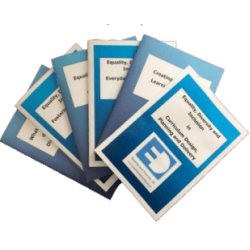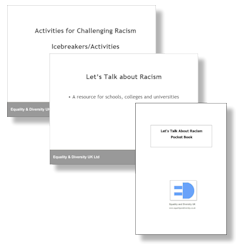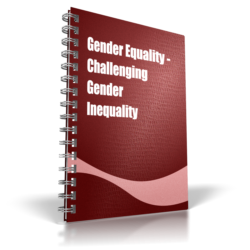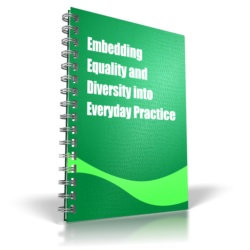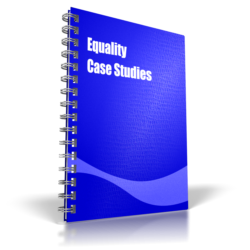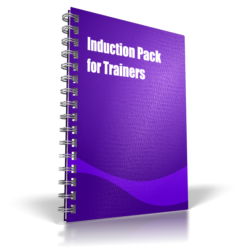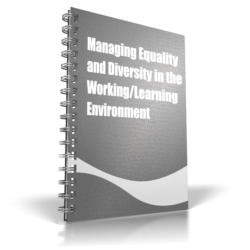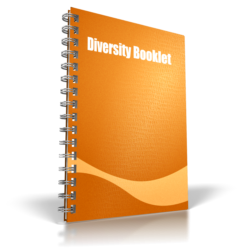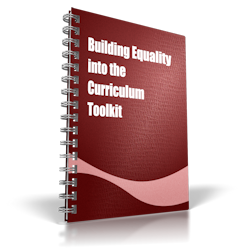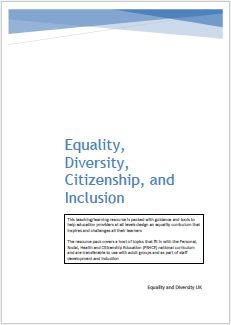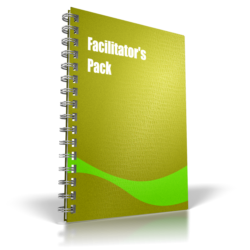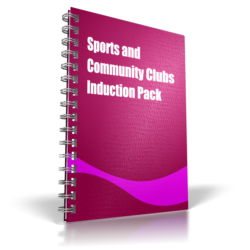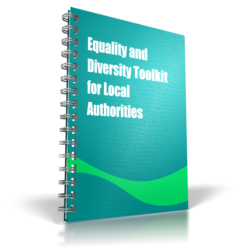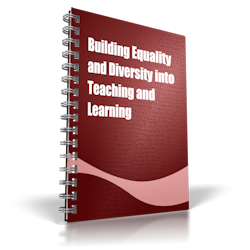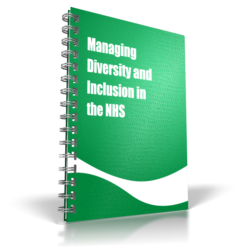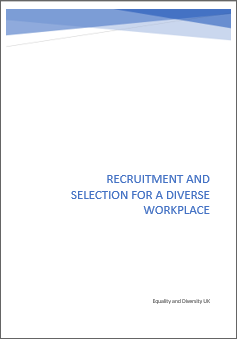Equality and Diversity Resources
Equality and Diversity UK have produced and collated various resources, information, publications and statistics to improve understanding of issues relating to equality and diversity. We have various packs available for practitioners - PDF files, documents, presentations, quizzes and activities to use in colleges, schools and work based learning organisations. These resources also support other providers who work with diverse groups of people and individuals.
Prices shown are for packs sent in electronic format by email. If preferred, we can post on a USB (add £10) or send printed copies (add £20)
Please select the type of resource you are looking for using the buttons below
Equality, Diversity and Inclusion Good Practice Pocket Books
These 9 EDI Pocketbooks are for those with responsibility for managing, supervising or influencing others. Easy to carry around and a quick read to update your knowledge, skills and understanding around a range of aspects of EDI
Protected Characteristic Pocket Books
The 9 Pocketbooks cover each of the protected characteristics. They offer managers, trainers, supervisors, HR personnel and trade union representatives an insight into how discrimination can occur in the workplace and how it can be dealt with.
Equality Act Highway Code Pocket Book
Focuses on helping you to; understand what employers are required to do under equality legislation, identify what you as an individual and in your job role need to do to comply with the legislation and identify competencies that you need to develop.
Equality Impact Assessments Pocket Book
A practical tool to help identify discrimination by analysing your policies, practices, processes, procedures, services, decisions etc. to make sure they do not discriminate or disadvantage people and will help towards improving or promoting equality.
Selection and Recruitment Pocket Book
This Pocket Book offers senior managers, trainers, supervisors, line managers, HR personnel, employees and employee/trade union representatives a guide to avoiding discrimination within the selection and recruitment process.
Equality and Diversity in the Workplace Pocket Book
This pocketbook focuses on helping employers and employees to understand their rights and responsibilities under the Equality Act and how to manage and embed equality, diversity and inclusion into everyday practice.
Public Sector Equality Duty Pocket Book
This guide has been developed for organisations that are covered by the specific public sector equality duties, as contained in the Equality Act 2010. Includes details on the general duty, specific duties, compliance, responsibilities and procurement.
Online meetings and EDI Considerations
As online meetings become more frequent, risks of subtle acts of exclusion, harassment and discrimination can be displayed.
This pocket book addresses the risks and puts forward ideas to counter these risks and make meetings more equitable.
LGBT Mental Health Pocket Book
Some people who identify as LGBT may experience difficulties that affect their health and well-being. LGBT people can face prejudice and discrimination as part of a minority. This Pocket Book looks at some of these issues and solutions.
Equality, Diversity and Inclusion for Governors
Focuses on helping Governors to recognise why championing EDI is an important part of a their role, understand what FE and skills providers are required to do under equality law and identify what governors need to do to ensure the organisation fulfils its equality obligations to all
Definitions and Terminology Pocket Book
Offers senior managers, trainers, supervisors, line managers, HR personnel, employees and employee/trade union representatives a guide to Equality and Diversity terms relating to nine protective characteristics and the Equality Act 2010.
Gender Diversity Booklet
This booklet is suitable for staff at all levels who need to learn more about their responsibilities to contribute to making the organisation welcoming to trans* people on the Gender Diversity spectrum.
Reasonable Adjustments Pocket Book
This Pocket Book offers senior managers, trainers, supervisors, line managers, HR personnel, employees and employee/trade union representatives an insight into the legal requirement and value in providing reasonable adjustments in the workplace.
Disability Awareness in the Workplace
This booklet is suitable for anyone who wishes to learn more about their responsibilities regarding disability in the workplace.
Disability in Goods, Services and Facilities
This Disability Awareness booklet is for organisations providing goods and services and is suitable for anyone at management level who wishes to learn more about their responsibilities regarding disability in the provision of goods, services and facilities.
Everyday EDI Good Practice for Freelance Artists
This Pocket Book focuses on helping you to understand why freelance artists need to know about equality law, what you need to improve, and be more inclusive in what you say and do and challenge discriminatory language and behaviour
Unconscious Bias in Recruitment and Selection
Those involved in the recruitment processes may like to think that logic drives their decisions but often it can be driven by implicit instinct and bias. This Pocket Book provides a guide to avoiding unconscious bias and discrimination within the selection and recruitment process.
Equality, Diversity and Inclusion Pocketbook for Airports
This Pocket Book provides guidance for airports in providing services for people with mobility limitations and disabilities.
It also includes the legal responsibilities regarding disability in the provision of goods and services and facilities.
Unconscious Bias Case Studies
12 Case Studies from Tribunals. Organisations must be proactive in preventing any form of discrimination influencing a disciplinary process and assess whether sufficient safeguards are in place to maintain fairness and prevent unconscious bias influencing decisions.
FE College - Managers, teachers and support staff Lesson Plan
This booklet has been produced to help managers, teachers and support staff at FE Colleges to explore EDI information and guidance relating to common operational situations and issues.
Equality Act Good Practice Guide
An overview of the Equality Act, the groups it covers, and the responsibilities it places on employers. It offers advice and guidance to assessment, strategies and to practical application for embedding EDI.
Creating inclusive and respectful working environments
A comprehensive guide for organisations and individuals who are committed to creating inclusive and respectful working environments. It provides valuable insights, practical tips, and actionable strategies
Recruitment and Selection: Guide for reaching and retaining diverse talent
Guide for recruiting and retaining ethnically diverse and neurodiverse talent and for recruiting women into male dominated roles and men into female dominated roles. Includes checklist and questions to evaluate your practice
Recruitment, Selection, and Inclusive Practices Pocketbook for Schools
Strategies to ensure that schools meet the Public Sector Equality Duties (PSED) when recruiting teaching and management staff. The aim is to reach underrepresented candidates for teaching, and management staff positions, and promote an inclusive recruitment process.
Courageous Conversations Game
This engaging and informative game is designed to foster understanding, awareness, and open dialogue about the Equality Act 2010, protected characteristics, various types of discrimination, reasonable adjustments, inappropriate language, leadership and management of EDI, and bullying. This is done through the context of the 5Cs framework:
Looking at learning and development in a different way
This publication is designed to provide teachers and management with the tools and knowledge to create an anti-racist curriculum that not only reflects the diverse histories and contributions of Black and Asian people but also actively challenges and dismantles systemic racism within education.
Neuro-Inclusive Workplace - Pocketbook
Neurodiversity refers to the natural variation in the human brain regarding sociability, learning, processing, attention, mood, and other mental functions. It is a perspective that brain differences are normal, just like any other human variation.
Highway Code to Equality in Schools - Pocketbook
An essential guide to understanding and combating discrimination in education. Just as drivers follow traffic rules to ensure safety and harmony on the roads, this pocketbook provides guidelines to foster an inclusive, respectful, and fair learning environment.
Managing and Avoiding Unconscious Biases in the Workplace - Handbook
This handbook serves as a guide to help you understand, recognise, and mitigate unconscious biases to promote equality, tackle discrimination, and foster positive relationships between diverse groups of staff and service users
Fostering Good Relations - Pocketbook
This Pocket Book focuses on helping you to recognise discriminatory language and behaviour, promote inclusive language and behaviour, deal with discrimination in a way that supports victims, promotes change and fosters good relations, and deal with disclosures by learners
Guide to being an Active Anti-Racism Bystander in the Workplace
This toolkit aims to provide practical tips and strategies for being an active anti-racism bystander in the workplace.
Foster Carers Race Awareness Pocketbook
Cultural competency is crucial for foster carers providing care for ethnically diverse children and young people. These guidelines aim to equip foster carers with the necessary knowledge and skills to understand, respect, and support the cultural identities of the children in their care.
Building Anti-Racist Workplaces Pocketbook
This pocketbook is designed to provide practical insights and strategies for organisations and individuals to foster inclusive environments where everyone feels valued and respected
Anti-Racism Pocketbook for staff and management
This publication will support you to understand White privilege, White fragility and White saviourism and give them the language, education, and knowledge to feel empowered and confident to tackle uncomfortable conversations.
Race Equality in Education Pocketbook
This Pocketbook focuses on helping you to raise your awareness of the current climate around race equality in the education sector and the workplace, explore good and developing practice and offer advice and guidance on embedding effective practice around race equality in your everyday practice
Enhancing Recruitment and Selection Practices
In any recruitment and selection process, it is essential to acknowledge and address personally held biases. By recognising and mitigating biases, organisations can create more inclusive and effective recruitment and selection processes.
Challenging Racism in Schools Pocketbook
The aim of this resource is to inform, challenge, and empower schools, staff, parents, and students to foster a more inclusive and equitable educational environment. This guide is not just about understanding racism; it is about taking concrete steps to combat it.
Anti-Racist Strategies for the Workplace
This resource was developed to ensure that employers proactively develop anti-racist strategies for inclusive policies, processes, procedures, practices, and people development within the workplace.
Cultural Competency Guidance and Activity Pack
In this handbook, we'll explore what cultural competency is, why it's vital, and provide ten key tips for embedding it into policies, processes, procedures, practices and people development.
Navigating Racism in Schools Pocketbook
Racism remains a pervasive issue in schools, affecting children from diverse backgrounds. This pocketbook aims to shed light on various forms of racism, including hate speech, microaggressions, and systemic biases. By understanding and addressing these issues, we can work towards creating inclusive environments for all students.
Understanding and Addressing Microaggressions in University Settings Pocketbook
Microaggressions are subtle yet harmful acts or comments that target marginalised groups, often unintentionally. This pocketbook aims to elucidate the nature of microaggressions, their impact, and strategies for mitigation within university settings.
Embracing Cultural Competence in Healthcare
This comprehensive guide aims to shed light on the crucial aspects of cultural competence, offering practical insights for healthcare staff to integrate into their daily practices.
Neurodiversity in the Workplace Pocketbook
This pocketbook is designed to guide inclusive practice through the lens of neurodiversity. Whether you're an HR professional, manager, or colleague, your role in fostering belonging matters. Together, we can shape workplaces where every mind is valued.
Communicating for Racial Justice Pocketbook
A comprehensive guide designed to equip activists, organisers, and advocates with the tools and insights necessary to effectively communicate about racial inequality.
Good EDI Practices for Schools
This pocketbook serves as a guide to implementing good equality practices in various aspects of school life, including curriculum, admissions, cultural competence, disability, dealing with discrimination and harassment, embedding religion and belief policies, racial discrimination policies, embedding diversity into school functions, and celebrating diversity.
Anti-Sexism in the Workplace Pocketbook
By following this guide, you will gain insights into the various forms of sexism, understand its impact, and develop the necessary communication skills, self-awareness, and allyship to create a workplace culture that values equality and diversity.
Ethnically Diverse Employees in the Fire and Rescue Service
Increasing diversity into employment is critical within Fire and Rescue to achieving full employment, helping people achieve their aspirations, and ensuring that public services make the most of the talent and potential that exists in all communities across the UK.
Anti-Racism Guidance Pack
The Anti-Racism Guidance Pack aims to address incidents of racism in the workplace and provide a comprehensive understanding of racism, its impact on individuals and the organisation, and steps to rectify and prevent such behaviour, and to foster a culture of inclusivity, respect, and equality within the workplace.
Toolkit for addressing educational disadvantage for ethnically diverse children and young people in UK schools
This comprehensive toolkit focuses on strategies, good practices, and best practices aimed at addressing educational disadvantage among ethnically diverse students.
Inclusive Recruitment and Selection
This pocketbook serves as a concise and practical resource for HR professionals/interview panel members and hiring managers who aim to conduct inclusive and ethical recruitment and selection processes.
Navigating the Diversity Landscape Pocketbook
In this Pocketbook, we will delve into the cultural competencies required for each of the nine protected characteristics, providing a checklist of best practices. We will also furnish an assessment checklist for practitioners and employers to gauge their cultural competence
Community-Led Housing in Ethnically Diverse Communities Toolkit
This pocketbook is a comprehensive and well-structured resource that offers valuable guidance and support for a wide range of stakeholders involved in community-led housing initiatives within ethnically diverse communities in the UK
Anger Management in the Workplace Pocketbook
This pocketbook is designed to help leaders recognise the signs of anger in themselves and offers practical tips for avoiding and managing anger while fostering a positive workplace culture.
EDI Good Practice for Volunteers
This Pocket Book focuses on helping you to understand why volunteers need to know about equality law, recognise how ‘equality aware’ you are and what you need to work on to improve, be more inclusive in what you say and do and challenge discriminatory language and behaviour
Addressing Bullying Allegations
Bullying can occur in professional settings through actions like intimidation, undermining, or verbal abuse. This booklet looks at the differences between constructive feedback and workplace bullying, particularly in the context of managers and their interactions with employees
Board of Trustees Good Practice Guidance Pocketbook
This pocketbook serves as a comprehensive guide for both new and existing trustees, outlining the critical roles and responsibilities of trustees in ensuring the effective governance and operation of charitable organisations.
Cultural Competence in Public Services
This pocketbook is designed as a comprehensive guide to enhance cultural competence within a wide spectrum of public services, including but not limited to the NHS, Education, Local Authorities, Housing, Police, and all agencies and organisations that engage with ethnically diverse individuals and groups.
Understanding Microaggressions Pocketbook
This guide is designed for Learning Providers, Colleges, and Universities to illuminate the concept of microaggressions, their pervasive effects, and effective strategies for recognising, addressing, and preventing them.
Creating Inclusive and Safe EDI Sessions
This pocket book is specifically designed for facilitators, trainers, educators, and anyone involved in conducting Equity, Diversity, and Inclusion (EDI) sessions., and drive positive change in their EDI sessions.
Pocketbook for Academy Primary Schools
The purpose of this guidance is to equip schools with practical tools, frameworks, and strategies that seamlessly integrate EDI principles into everyday practices, curriculum design, planning, and delivery.
Inclusive Working Environments Pocket Book
This pocketbook aims to equip organisations with the knowledge and tools necessary to ensure that employees with a wide range of protected characteristics are provided with support and resources to enable them to perform their roles effectively.
Acting Agaisnt Racism Pocket Book
This guide is designed for individuals seeking to educate themselves on racism, organisations committed to promoting equality, tackling discrimination, and fostering positive relationships between diverse groups of people, and managers eager to cultivate a safe and supportive environment for their employees.
White Privilege, Microaggressions and Intersectionality Pocket Book
This publication looks at White Privilege, Microaggressions and Intersectionality. Includes case studies, examples and advice on how to deal proactively with these issues.
Reciprocal Mentoring Pocketbook
Reciprocal mentoring is a mentoring relationship where both parties learn from each other, acknowledging that everyone has unique experiences and insights to share, regardless of their position or age. In this pocketbook, we explore the benefits, and how to implement it effectively in your workplace.
Courageous Conversations on Anti-Racism in Schools
This booklet contains powerful insights into the lived realities of racism in schools, revealing both the challenges and the urgent need for systemic change
Anti-racist Pocket Book for Schools
This pocketbook is designed to help schools proactively embed anti-racism into their daily practices. It provides practical guidance, real-world examples, and actionable steps for school staff, management, parents, carers, and the wider school community.
Support document for Education Providers
Embedding EDI into school and sixth-form policies, processes, procedures, practices, and people development is essential for fostering a culture where every student, staff member, and stakeholder feels respected and valued
Preparing Apprenticeships for the Workplace
This pocketbook is designed to help Employers, Apprenticeship bodies, Mentors and Trainers actively embed better anti-racism and EDI into their daily work practices. It provides practical guidance, real-world examples, and actionable steps for apprenticeship bodies, mentors and trainers.
Sexual Harassment Pocketbook
This pocketbook aims to remove any mystery and misconceptions and clearly defines sexual harassment and suggests simple strategies for avoiding and managing sexual harassment and complaints, as well as offering practical advice on dealing with challenging situations in an effective way
The EDI Role in Shaping Organisational Culture, Performance, and Leadership
This document provides insights and strategies for leaders, EDI professionals, and organisational decision-makers to embed EDI into everyday practice. By integrating EDI into governance, leadership, policy, and employee engagement, organisations can create more inclusive and high-performing workplaces.
Pocketbook for EDI Leads, Trainers, and Management
The EDI role is integral to shaping workplace culture and driving business performance. In an increasingly diverse workforce, organisations that prioritise inclusion see enhanced employee engagement, innovation, and productivity
EDI Handbook for School Governors
This Equality, Diversity, and Inclusion (EDI) Pocketbook gives governors practical insight, real-life legal cases, and checklists that bring equity into everyday school life. From tackling discrimination to boosting cultural competence, this guide helps you ask the right questions, challenge assumptions, and champion inclusion for every child.
EDI Bingo activities
This collection of activities has been created to bring people together through shared learning, reflection, and dialogue. They offer an engaging way to surface real experiences, highlight the nuances of inclusion, and invite people to commit to being allies and change-makers. These bingo games are not just icebreakers, they are tools for transformation.
EDI Policies Guidance
This document provides practical, strategic and inclusive guidance to ensure that your organisation's EDI policy is not only robust in wording but transformative in action. Grounded in legal compliance, lived experience and thoughtful design, this guide is an anchor for meaningful change.
Trans Awareness Post April 2025
This Pocketbook integrates the UK Supreme Court ruling on 2025 with a commitment to human rights, inclusion, and practical implementation. It is designed to guide organisations to meet their legal duties while maintaining a culture of compassion, fairness, and respect.
Healthy Relationships Pocketbook
This Accessible Read Pocketbook is for children, young people, and students. It uses simple language and helpful examples to show what healthy and unhealthy relationships look like. It includes practical tips, real-life situations, and inclusive messages that respect everyone's culture, background, identity, and experiences.
Community Impact Assessment Plain English
This guide is for people working in primary care like doctors, nurses, receptionists, and support workers. It is also helpful for community groups and families. This guide explains what neurodiversity is, why it matters, and how it affects people from different cultural backgrounds.
Understanding Neurodiversity in Ethnically Diverse Communities Easy Read
This guide helps explain how to support people from ethnically diverse communities who are neurodivergent. It is for people working in primary care like doctors, nurses, receptionists, and support workers, as well as community groups and families.
Race Equality Pocket Book
This pocketbook is a guide for making workplaces inclusive. It has been produced to get people talking about race, ethnicity, discrimination, diversity and inclusion. It offers an insight into the key issues and barriers we face in having honest, open conversations about race and racism in the workplace.
Racism in Learning Organisations Pocket Book
This booklet gives a step by step guide in how to identify and begin to tackle racism your institution, including identifying types of racism and racial harassment. It refers to existing research and reports in educational organisations
Introduction to Anti-Racism Pocket Book
This pocketbook gives insights into how to work towards being actively anti-racist in the workplace. We hope that this resource helps all individuals to raise their awareness, knowledge and understanding around supporting ethnically diverse individuals.
Addressing Racism in Schools
This resource is designed to support those wanting to improve their anti- racist practice in schools. It will help teachers and other practitioners in understanding how racist behaviour occurs, what it looks and sounds like, and how it impacts on those experiencing it
Anti-Racism Pocket Book for Schools and Academies
This resource is designed to support learning and raises awareness of the needs, rights, and lives of ethnically diverse parents and carers within your school/academy.
Anti-Racism Pocket Book for Universities
Looks at the impact of racism on ethnically diverse staff and students within higher education. Because of entrenched white privilege, it is important that these organisations are able to understand the need for more inclusive recruitment and selection processes.
What is Racism Pocketbook
This pocketbook gives insight into how racism has continuous impact in our workplaces and beyond. With such a diverse wealth of people in the UK, it is important to understand what it means to be racist, how to work towards being actively anti-racist, and being an advocate for all ethnically diverse individuals.
Challenging Discriminatory Language Pocketbook
Offers teachers, senior leaders, lecturers and support staff guidance in challenging discriminatory language/ behaviours by raising awareness of the importance of inclusive workplace/learning environments.
Allyship: Supporting Black colleagues in the workplace
This Pocketbook gives insight on how you can be an ally in the workplace, and how to navigate courageous and difficult conversations surrounding race. With such a diverse wealth of people in the UK, it is important to understand what it means to be an ally and how to be actively anti-racist.
Race Equality in the Veterinary Sector
This Veterinary employers/employee guide aims to build on good practice and assist Vets in developing policies, processes, procedures, and practice as part of their commitment to promote equality, tackle discrimination and foster positive relationships between diverse groups of people.
Supporting the Agenda
Designed to encourage and support open and constructive conversations about racism in the workplace. It will be useful to staff at all levels including Race Equality Leads, senior management, staff and others working with groups to raise their awareness of racism and how to address it.
Let's Talk about Racism Resources
Teachers sometimes feel hesitant to raise issues of race; strong emotions can emerge and teachers may feel they don’t have enough information or background to design, plan or deliver the topic well. This resource provides suggestions and strategies for having conversations with young people about race and racism.
Caring for Ethnically Diverse Children in Foster Care
A Handbook for Foster Carers.
It is not sufficient that we think about the needs of ethnically diverse children and young people as merely providing the right foods, skin care and hair products but also to address their emotional and social needs.
Customs and Cultures of Children and Young People Pocket Book
The UK's diverse wealth of culture make it is important to understand what it means to be culturally aware, the different customs of some religious groups, and how positive interactions with these groups should look like.
Intersectionality Pocket Book
Whether the topic is disability, race, sex, sexual orientation, or other protected or non-protected characteristics, it is important for organisations to understand the full identity of each individual in the workplace. This way, they are able to commit to proactively developing intersectional strategies for growth and development.
Managing and avoiding microaggressions in the workplace
Aims to equip you with 20 practical tips to avoid and address microaggressions, shedding light on how staff and managers can actively support individuals from ethnically diverse backgrounds who encounter such experiences in the workplace.
Anti-Racism Toolkit:
Understanding Race Equality
Designed to provide comprehensive guidance and resources for promoting race equality and combating racial discrimination. Its purpose is to support individuals and organisations in understanding and addressing racial inequalities and creating fair and inclusive workplaces or communities
Race Equality and Anti-Racism Toolkit
Sections include: Explaining Racism in its different guises; Unveiling White Privilege; A Closer Look at its Manifestation in Professional Environments; Promoting Dialogue and Reflection; Discussing Racist Microaggressions and What/How to avoid them
Disability Smart Toolkit for SEND in Schools
Designed to help schools self-assess, audit, and embed disability inclusion into every aspect of school life – from leadership to teaching, the built environment, and pupil voice. Covers Leadership, Learning and Development, Recruitment, Retention, Procurement, Communication, Technology
Mental Health Pocketbook
The Equality Act provides legal protection for individuals with mental health conditions, classifying most long-term mental health conditions as disabilities. This means people with mental health challenges have a legal right to be free from discrimination and to receive reasonable adjustments when working, studying, using public services, or engaging in daily life.
Bystander Intervention Pocketbook
This training booklet aims to equip staff with a range of tools to challenge exclusionary language and behaviours when they witness them. It aims to empower staff to create and maintain a culture that embraces EDI through the reinforcement of messages defining the boundaries of unacceptable behaviour.
Police in Schools
The presence of police officers in schools has become a point of significant debate. Increasing evidence shows these arrangements often appear in areas with ethnically diverse and economically disadvantaged populations raising concerns about disproportionate policing and unintended harm to students.
EDI for School Staff and Management
This is a practical resource for Headteachers, Deputy Headteachers, SENCOs, classroom practitioners, and support staff. It anchors Equality, Diversity and Inclusion (EDI) into everyday actions, decisions, and behaviours across recruitment, curriculum, leadership, safeguarding, family engagement, and daily interactions.
Neurodiversity at Work Pocketbook
Neurodiversity describes the natural differences in human brain function and thinking styles. It’s not a deficit; it’s part of human diversity, like ethnicity or gender. This pocketbook is designed to help you recognise ability, make reasonable adjustments, and create environments where everyone can participate fully.
Gender Identity and Gender Expression
Everyone deserves dignity, respect, and safety at work. Yet, trans and non-binary people continue to face barriers in workplaces. This pocketbook aims to help staff at all levels from frontline colleagues to HR, managers, and senior leaders understand gender identity and gender expression, their legal responsibilities, and how to embed inclusive practice.
Anti racism for staff and management
Covers the role of White privilege in racism and covert/overt racism, including Subtle Acts of Exclusion. This booklet will support you to understand White privilege, White fragility and White saviourism and give you the language, education, and knowledge to feel empowered and confident to tackle uncomfortable conversations.
A Practitioner's Pack for the Delivery of Equality and Diversity
Suitable for learners of all ages and all sectors, this activity pack contains 19 practical tried and tested activities specifically aimed at
raising staff and learner awareness of equality and diversity issues.
Part of the Practical Tools set
Design, Planning and Delivery of EDI in Teaching and Learning
A practical toolkit to help practitioners improve their practice and meet their legal and professional obligations by designing, planning and delivering teaching, learning and assessment activities that engage learners.
Embedding EDI into Everyday Practice
This pack covers the basic concepts of equality and diversity to the legal picture. It goes on to look at the quality processes of inspection and self-assessment before looking in detail at embedding EDI in teaching and learning and learning support.
Good Practice Handbook for Education Providers
This pack is to help learning providers to ensure they comply with the law by meeting their obligations under the public sector equality duty and meeting Ofsted requirements to develop awareness of diversity in relation to the protected characteristics
Learners' Study Pack and Facilitator's Study Pack
This equality, diversity and inclusion (EDI) Study Pack for Learners provides advice, guidance and practical activities to help learners better understand what equality, diversity and inclusion really means. There is also an accompanying Facilitator's Pack
EDI Induction - Trainers Pack
This resource provides an induction and refresher package for staff working in a range of capacities in all sectors. It can be used to form the basis of induction training or guided self study for new and existing staff, including temporary staff, volunteers and people on work placement.
EDI Induction - Learners Pack
This pack provides teaching staff with advice, guidance and Session plans that will help them to explore the key issues with learners, explain complex legislation simply and clearly and act on the organisation's race, disability and gender equality duties.
Self Assessment Toolkit
Toolkit to help staff improve EDI considerations in the self-assessment process. This forms an important part of the evidence submitted in the inspection process. Primarily aimed at schools, colleges and skills providers, but other service providers in different settings will be able to benefit.
Train the Trainer Pack: Organisations
Set of 6 packs at a discounted price. These resources can be used by trainers when delivering on the EDI agenda. Includes EDI Study Packs - Employees and Facilitators, Induction packs - Trainers and Learners, Facilitator's Guide and Equality Case Studies
Train the Trainer Pack: Education
Set of 5 packs at a discounted price. These resources can be used by trainers when delivering on the EDI agenda. Includes the three packs in Practical Tools set, Facilitator's Guide and Equality Case Studies
Diversity Booklet for the Education Sector
Includes 20 activities to help colleges, schools, work-based learning facilities to understand the importance of EDI within an educational establishment, consider some of the 'truths and myths' around discrimination and integrate new staff members or learners
Pack for Education Providers preparing for Ofsted Inspection
This pack will help you to understand the steps you need to take in order to embed EDI into all teaching and learning practice and activities, and to meet Ofsted requirements for schools, colleges and work based learning providers.
Who wants to be a Millionaire - Equality Act
A fun activity to help learners understand some of the main points of the Equality Act. The questions become more difficult as the learner goes from £100 to the million pound question and aims to provoke discussion and learning around the Equality Act.
Managing EDI for Support Workers
Look at meeting the needs of learners who require additional or special educational support. It provides an overview of equality legislation and how it applies in the workplace. It focuses in particular on the role of the support worker in an educational setting.
Teaching and Learning Standards
A detailed look at the standards that managers, staff, tutors and support staff need; identifying what they must be able to do and what they should know and understand in order to do it. It also outlines behaviours that underpin personal and professional conduct
Building Equality into the Curriculum Toolkit
This Toolkit acts as a guidance document, an induction resource and a resource to support teams and managers to explore issues related to effective EDI within the curriculum. For further developed organisations, it acts as a refresher.
Equality, Diversity, Citizenship & Inclusion
Packed with guidance and tools to help education providers design an equality curriculum that inspires and challenges learners. It covers topics that fit in with the PSHE national curriculum Can be used with adult groups in staff development and induction.
Facilitator's Pack
The Facilitator's Handbook - an Equality and Diversity Training self-study pack - has been has been specifically developed for use with teams. Updated to include the 2010 Equality Act, it includes examples of designing your own Equality and Inclusion Workshops and Training, as well as example session plans.
Legal Services Pack
This pack provides advice and guidance for legal services firms on their duties and responsibilities to good equality and diversity practice. It is aimed at solicitors, barristers and other legal services companies that deal with the public and who are bound by the SRA Code of Conduct 2011.
Sports and Community Clubs Induction Pack
An induction and refresher package for staff and volunteers working for public, private and 3rd Sector organisations involved in the provision of opportunities for people of all ages, backgrounds and abilities to participate in and enjoy sporting activities.
Equality and Diversity Toolkit for Local Authorities
This equalities toolkit has been developed to provide some of the practical tools managers need to embed equality and diversity into the development, design and delivery of local authority services and into the recruitment and employment of staff.
Managing Race Equality in the Workplace
Provides employers and employees with information and insights about racism in society, how it develops, and its impact on the organisation, staff, service users and clients. Contains practical approaches to creating a fair and inclusive environment for all.
Managing Diversity and Inclusion in the NHS
The pack has been developed as a practical toolkit to help staff meet their legal and professional obligations and follow a twin-track approach to equality and diversity: that of tackling inequalities and fostering good relations between different groups.
Recruitment and Selection for a Diverse Workplace
This toolkit looks at the impact of racism on diverse applicants during the many stages of the recruitment process. Implementing diversity and inclusion practices during the recruitment and selection process is one of the first steps to developing a more diverse workplace if this is a current struggle.
Don't Miss out!
Subscribe to receive the latest equality and diversity news, offers and updates

